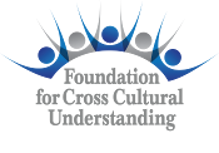Origin of the FCCU
In 1990, CISV USA was notified of a bequest from North Carolinian, Sarah Ernst Darnall who was a close friend of CISV's Founder, Doris Twitchell Allen. The administrator of Mrs. Darnall's will explained that CISV would be the recipient of 1/17th of Mrs. Darnall's estate. Once the total amount of $254,867.80 was received a few years later, the Executive Committee of CISV USA determined the funds should be housed in a non-profit organization separate from CISV USA. A tax exempt status was granted and the Foundation for Cross Cultural Understanding was established.As a separate entity, the Foundation for Cross Cultural Understanding (FCCU) has its own objectives, its own Board of Trustees, and operates independently from CISV USA. Since the Foundation was created, more than $170,000 in grants and scholarships have been awarded to individual members, Chapters, National Committees, and the National Association of CISV USA.
The Foundation's Tax ID number is 31-1390752.
Objectives
The primary objective of the Foundation for Cross Cultural Understanding is to approve funding for special projects which align with the purpose of each of the Foundation’s sub funds.
The sub funds are as follows:
- Sarah Ernst Darnall Fund
- to support the educational and cultural activities of CISV USA
- Scholarship for Humanity
- to benefit CISV USA youth who are entering a career which will directly impact the quality of life for humankind
- Marilyn J. Oleson Expansion Fund
- to support the expansion of CISV within the United States
- Peter and Vicki Tejada Fund
- for the sole use of CISV USA's San Francisco Bay Chapter
Organization
The Foundation for Cross Cultural Understanding is governed by a Board of Trustees composed of a minimum of five voting members who elect a President, Treasurer, and Secretary for a three year term. Foundation Trustees are elected by the Foundation's Board of Trustees on a rotating basis. Unless circumstances prohibit Trustees from doing so, Trustees can continue on the Foundation Board as long as they are willing to serve. One (1) member of the CISV USA Board of Directors serves as a non-voting liaison to the Foundation Board of Trustees and may be invited to meetings of the Foundation.Projects
From 1994 to 2013, the Foundation for Cross-Cultural Understanding approved 53 Grants to CISV USA’s Chapters and National Committees. The grants ranged in amounts from $500 to $15,000. During that time, the Foundation funded projects that involved training, technology, publications, etc. For nearly twenty years the Foundation has been successfully engaged in the growth of CISV USA and its Chapters.Thirteen CISV USA Chapters applied for grants during the period between 1994 and 2000. These grants were awarded for unique projects such as a Deaf Village, one of the first local Ethnic Villages, and the creation of a CISV landmark in one community. CISV USA was also awarded grants for relocating the National Office outside the Administrative Director’s home and for equipping the office with the latest technology. Chapter Presidents were trained, websites were developed, and alumni relations began.
In 2001, grants were awarded to several CISV USA’s National Committees to work on the Fiftieth Anniversary of CISV and the training of Interchange, and Junior Branch chair persons. Five CISV USA Chapters applied and received grants to work on various initiatives and programs in 2002 and 2003. These included work in diversity, Junior Branch development, and conflict resolution.
From 2004 to 2008, grants were awarded to CISV USA National Committees to help support Chapters in a variety of ways, which included the creation of an online training registration website called CISV University and the National Adult Meeting.
In 2009, the downturn in the economy made it necessary for the Foundation to call a moratorium on grants, but the following year the Foundation was once again able to award grants beginning with the Junior Branch North Summit. More recently the Foundation has been able to fund a variety of CISV USA proposals, which have included the support of CISV USA’s National Office and a continuation of Chapter Development work.
